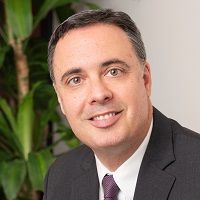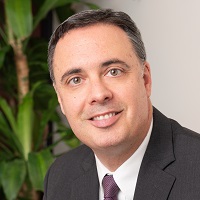Three Tips for Personal Debt Management
It takes both short- and long-term planning to stay on top of your finances. Adopt good debt management habits now, and you’ll be much happier in the long run.


Profit and prosper with the best of Kiplinger's advice on investing, taxes, retirement, personal finance and much more. Delivered daily. Enter your email in the box and click Sign Me Up.
You are now subscribed
Your newsletter sign-up was successful
Want to add more newsletters?

Delivered daily
Kiplinger Today
Profit and prosper with the best of Kiplinger's advice on investing, taxes, retirement, personal finance and much more delivered daily. Smart money moves start here.

Sent five days a week
Kiplinger A Step Ahead
Get practical help to make better financial decisions in your everyday life, from spending to savings on top deals.

Delivered daily
Kiplinger Closing Bell
Get today's biggest financial and investing headlines delivered to your inbox every day the U.S. stock market is open.

Sent twice a week
Kiplinger Adviser Intel
Financial pros across the country share best practices and fresh tactics to preserve and grow your wealth.

Delivered weekly
Kiplinger Tax Tips
Trim your federal and state tax bills with practical tax-planning and tax-cutting strategies.

Sent twice a week
Kiplinger Retirement Tips
Your twice-a-week guide to planning and enjoying a financially secure and richly rewarding retirement

Sent bimonthly.
Kiplinger Adviser Angle
Insights for advisers, wealth managers and other financial professionals.

Sent twice a week
Kiplinger Investing Weekly
Your twice-a-week roundup of promising stocks, funds, companies and industries you should consider, ones you should avoid, and why.

Sent weekly for six weeks
Kiplinger Invest for Retirement
Your step-by-step six-part series on how to invest for retirement, from devising a successful strategy to exactly which investments to choose.
With April designated as Financial Literacy Month, we are reminded not to take any personal financial knowledge we have for granted. According to FINRA, as of last year only one-third of Americans have a working understanding of interest rates, mortgage rates and financial risk. That staggering number unfortunately helps drive Americans deeper into debt — and puts them in need of debt management.
According to Bankrate, 35% of American adults carry credit card debt from month to month. This type of debt can hold people back from achieving both their financial goals and enjoying a life well-lived. So how do we work to create a healthy nation of financially stable adults?
Keeping active tabs on your personal financial situation requires both short-term and long-term planning. When economic times are healthy, there’s a natural propensity to loosen the reins on one’s spending. However, to avoid having to make possibly difficult decisions when (not if) economic times become tough, there are good behaviors you can maintain regardless of the current economic environment to protect yourself from financial harm.
Here are three tips on how to do just that:

1. Use a Budget/Spending Tracker.
As has been often quoted by many business experts, if you can’t measure performance, then you can’t improve it. This principle also directly applies to your own financial situation. There are a variety of ways nowadays to track your financial health — namely your assets and liabilities as well as your ongoing cash flow.
There are free apps you can use, such as Mint, that make it simple and easy to track your budget. Setting it up might take some time, but this helps build a solid foundation for your personal financial situation. Once you know where you’re coming from, you can make a plan for where you want to go.

2. Save Before You Spend.
Once you have a handle on your expenses, the highest priority is to create an emergency savings account that contains at least three to six months of your average monthly expenses. If your job and/or industry is volatile, then try to save nine to 12 months of your typical monthly expenses. These funds should be set aside in a standalone account instead of commingled with your primary savings or checking accounts. Doing that will hopefully eliminate any temptation to use your designated emergency funds for non-emergencies.
If you put these funds into a high-yield savings account, your money can work for you while it waits for a (hopefully distant) rainy day.
You should then aim to save and invest 10% to 20% of your after tax take-home income to achieve your goals, such as retirement and a future home purchase. For those new to investing, you can either work with a financial adviser or start with some simple, trustworthy trading apps, such as Betterment or Public.

3. Pay Down Outstanding Debt as Aggressively as Possible.
Personal debt can take several forms — the most common examples are education and mortgage. Unfortunately, it can take many years to satisfy these types of loan obligations and at a final cost much higher than originally anticipated. So it’s important to develop a plan to resolve each form of debt and stick to the plan as much as possible.
If you have multiple forms of debt and you’re unsure which one to prioritize, focus first on those with the highest interest rates. Paying those off quicker will reap the highest financial reward for you.
Credit card debt tends to be the most damaging to your credit score and the hardest to bounce back from. Once you pay down your debt, try to avoid any credit card debt in the future by automating monthly payments and purchasing only items you can pay for, if you opt to use a credit card, by the time your next credit card payment is due.
Financial literacy is a spectrum of knowledge we all will grow and learn throughout our lives. And with more apps and information available to us than ever before, we can work to create a society where we all benefit from financial prosperity, rather than drown in debt or feel held back from achieving our financial goals.
This April, take action and teach yourself something new about money. Or better yet, have a fearless conversation with your kids so that they are better equipped as adults to budget and invest. Your retirement plan will thank you for that one!
Halbert Hargrove Global Advisors, LLC (“HH”) is an SEC registered investment adviser located in Long Beach, California. Registration does not imply a certain level of skill or training. Additional information about HH, including our registration status, fees, and services can be found at www.halberthargrove.com. This blog is provided for informational purposes only and should not be construed as personalized investment advice. It should not be construed as a solicitation to offer personal securities transactions or provide personalized investment advice. The information provided does not constitute any legal, tax or accounting advice. We recommend that you seek the advice of a qualified attorney and accountant.
This article was written by and presents the views of our contributing adviser, not the Kiplinger editorial staff. You can check adviser records with the SEC or with FINRA.
Profit and prosper with the best of Kiplinger's advice on investing, taxes, retirement, personal finance and much more. Delivered daily. Enter your email in the box and click Sign Me Up.

Vincent Birardi is based in Halbert Hargrove’s Long Beach headquarters and brings more than 25 years of experience in financial services to his wealth advisory relationships with clients — along with a passion for identifying solutions that will enable them to fulfill their life goals. What he values most about his role is helping to bring clarity and peace of mind to clients and their families. Prior to joining the firm in 2018, Vincent held management roles with PIMCO and Morgan Stanley. He was awarded the ACCREDITED INVESTMENT FIDUCIARY™ designation by the University of Pittsburgh-affiliated Center for Fiduciary Studies and is a CERTIFIED FINANCIAL PLANNER™ professional.
-
 5 Vince Lombardi Quotes Retirees Should Live By
5 Vince Lombardi Quotes Retirees Should Live ByThe iconic football coach's philosophy can help retirees win at the game of life.
-
 The $200,000 Olympic 'Pension' is a Retirement Game-Changer for Team USA
The $200,000 Olympic 'Pension' is a Retirement Game-Changer for Team USAThe donation by financier Ross Stevens is meant to be a "retirement program" for Team USA Olympic and Paralympic athletes.
-
 10 Cheapest Places to Live in Colorado
10 Cheapest Places to Live in ColoradoProperty Tax Looking for a cozy cabin near the slopes? These Colorado counties combine reasonable house prices with the state's lowest property tax bills.
-
 Don't Bury Your Kids in Taxes: How to Position Your Investments to Help Create More Wealth for Them
Don't Bury Your Kids in Taxes: How to Position Your Investments to Help Create More Wealth for ThemTo minimize your heirs' tax burden, focus on aligning your investment account types and assets with your estate plan, and pay attention to the impact of RMDs.
-
 Are You 'Too Old' to Benefit From an Annuity?
Are You 'Too Old' to Benefit From an Annuity?Probably not, even if you're in your 70s or 80s, but it depends on your circumstances and the kind of annuity you're considering.
-
 In Your 50s and Seeing Retirement in the Distance? What You Do Now Can Make a Significant Impact
In Your 50s and Seeing Retirement in the Distance? What You Do Now Can Make a Significant ImpactThis is the perfect time to assess whether your retirement planning is on track and determine what steps you need to take if it's not.
-
 Your Retirement Isn't Set in Stone, But It Can Be a Work of Art
Your Retirement Isn't Set in Stone, But It Can Be a Work of ArtSetting and forgetting your retirement plan will make it hard to cope with life's challenges. Instead, consider redrawing and refining your plan as you go.
-
 The Bear Market Protocol: 3 Strategies to Consider in a Down Market
The Bear Market Protocol: 3 Strategies to Consider in a Down MarketThe Bear Market Protocol: 3 Strategies for a Down Market From buying the dip to strategic Roth conversions, there are several ways to use a bear market to your advantage — once you get over the fear factor.
-
 For the 2% Club, the Guardrails Approach and the 4% Rule Do Not Work: Here's What Works Instead
For the 2% Club, the Guardrails Approach and the 4% Rule Do Not Work: Here's What Works InsteadFor retirees with a pension, traditional withdrawal rules could be too restrictive. You need a tailored income plan that is much more flexible and realistic.
-
 Retiring Next Year? Now Is the Time to Start Designing What Your Retirement Will Look Like
Retiring Next Year? Now Is the Time to Start Designing What Your Retirement Will Look LikeThis is when you should be shifting your focus from growing your portfolio to designing an income and tax strategy that aligns your resources with your purpose.
-
 I'm a Financial Planner: This Layered Approach for Your Retirement Money Can Help Lower Your Stress
I'm a Financial Planner: This Layered Approach for Your Retirement Money Can Help Lower Your StressTo be confident about retirement, consider building a safety net by dividing assets into distinct layers and establishing a regular review process. Here's how.
